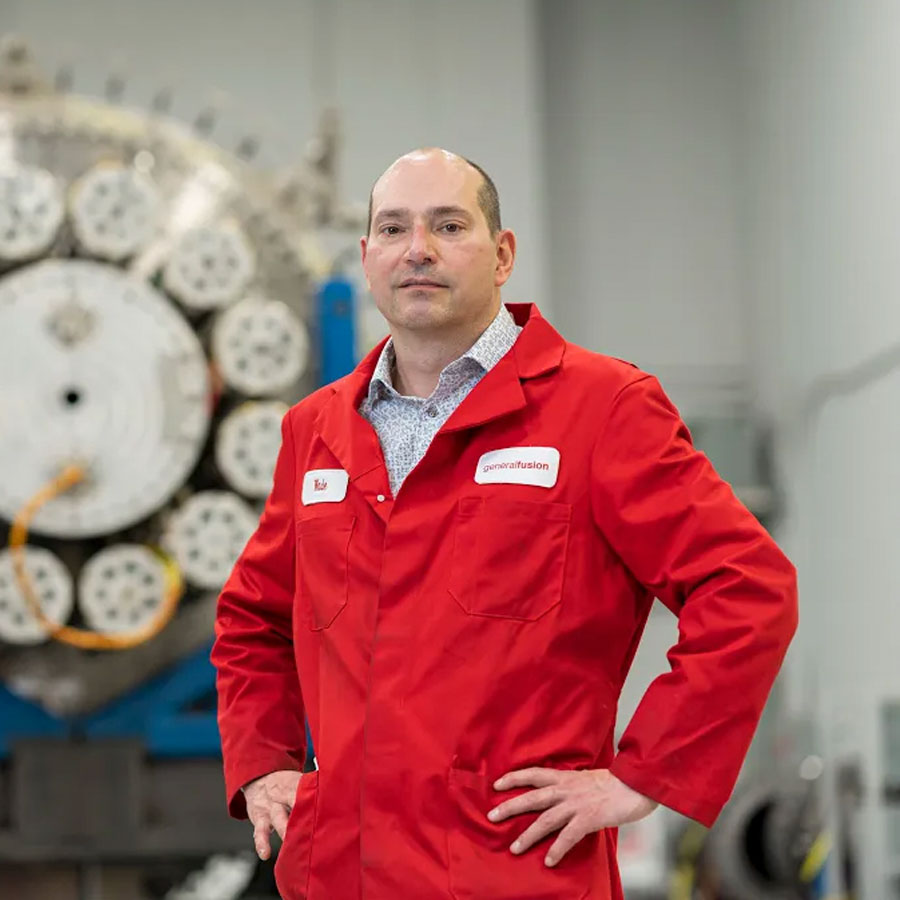Presentation Abstract
Speaker: Dr. Stephen Howard (General Fusion): Achieving net energy gain with a Magnetized Target Fusion (MTF) system requires the initial plasma state to satisfy a set of performance goals, the conceptually simplest of these include total particle inventory (~10^21 ions), sufficient magnetic flux (~0.3 Wb) to confine the plasma inventory without becoming MHD unstable, and initial energy confinement time several times longer than the compression time. Other requirements are more complex and flexible; initial temperature can be traded off against increasing maximum compression ratio, device size can be reduced by increasing density, and limits on confinement time can be dealt with by speeding up the compression. General Fusion (GF) is now constructing Plasma Injector 3 (PI3) to explore the physics of reactor-scale plasmas and to demonstrate performance goals on total inventory, magnetic flux, and energy confinement time. These goals are a >10x increase from previous MTF experiments completed by GF. Energy considerations lead us to design around an initial state of Rvessel = 1 m. PI3 will use fast coaxial helicity injection via a Marshall gun to create a spherical tokamak plasma, with no additional heating. MTF requires solenoid-free startup with no vertical field coils, and will rely on flux conservation by a metal wall. PI3 is a continuation of the SPECTOR sequence of devices, so increasing device radial size by 5x is expected to yield magnetic lifetime increase of 25x, while peak temperature of PI3 is expected to be similar (400-500 eV) to what has been achieved on SPECTOR. Physics investigations will study MHD activity and the resistive and convective evolution of current, temperature and density profiles. We seek to understand the confinement physics, radiative loss, thermal and particle transport, recycling and edge physics of PI3.
Download the presentation here
S. Howard, M. Laberge, M. Reynolds, P. O’Shea, R. Ivanov, W. Young, P. Carle, A. Froese, K. Epp. Physics objectives of PI3 spherical tokamak program. Exploratory Plasma and Fusion Research Workshop, Vancouver, Canada. August 3, 2017

